PCGS SP66 1965 Great Britain Death of Winston Churchill Silver Medal toned
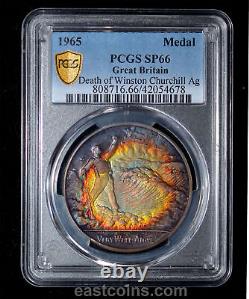
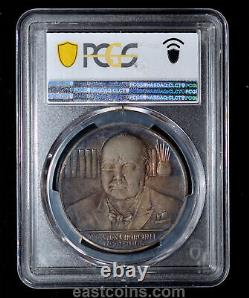
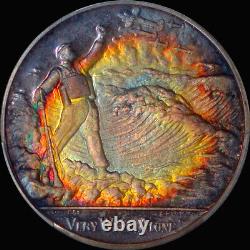
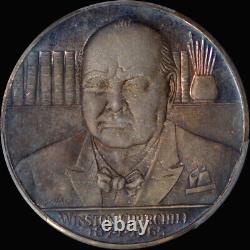
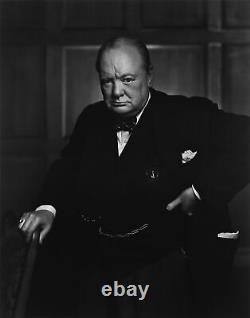


PCGS SP66 1965 Great Britain Death of Winston Churchill Silver Medal toned. PCGS SP66 1965 Great Britain Death of Winston Churchill Silver Medal - Monster toning! Sir Winston Leonard Spencer Churchill, (30 November 1874 - 24 January 1965) was a British statesman, soldier and writer who served as Prime Minister of the United Kingdom from 1940 to 1945, during the Second World War, and again from 1951 to 1955. Apart from two years between 1922 and 1924, he was a Member of Parliament (MP) from 1900 to 1964 and represented a total of five constituencies.
Ideologically an economic liberal and imperialist, he was for most of his career a member of the Conservative Party, which he led from 1940 to 1955. He was a member of the Liberal Party from 1904 to 1924. Of mixed English and American parentage, Churchill was born in Oxfordshire to a wealthy, aristocratic family. He joined the British Army in 1895 and saw action in British India, the Anglo-Sudan War, and the Second Boer War, gaining fame as a war correspondent and writing books about his campaigns.
Elected a Conservative MP in 1900, he defected to the Liberals in 1904. Asquith's Liberal government, Churchill served as President of the Board of Trade and Home Secretary, championing prison reform and workers' social security. As First Lord of the Admiralty during the First World War, he oversaw the Gallipoli Campaign but, after it proved a disaster, he was demoted to Chancellor of the Duchy of Lancaster. He resigned in November 1915 and joined the Royal Scots Fusiliers on the Western Front for six months. After two years out of Parliament, he served as Chancellor of the Exchequer in Stanley Baldwin's Conservative government, returning the pound sterling in 1925 to the gold standard at its pre-war parity, a move widely seen as creating deflationary pressure and depressing the UK economy.
Out of government during his so-called "wilderness years" in the 1930s, Churchill took the lead in calling for British rearmament to counter the growing threat of militarism in Nazi Germany. At the outbreak of the Second World War he was re-appointed First Lord of the Admiralty. In May 1940, he became Prime Minister, replacing Neville Chamberlain.
Churchill formed a national government and oversaw British involvement in the Allied war effort against the Axis powers, resulting in victory in 1945. After the Conservatives' defeat in the 1945 general election, he became Leader of the Opposition. Amid the developing Cold War with the Soviet Union, he publicly warned of an "iron curtain" of Soviet influence in Europe and promoted European unity.
His second term was preoccupied with foreign affairs, especially Anglo-American relations and the preservation of the British Empire. Domestically, his government emphasised house-building and completed the development of a nuclear weapon (begun by his predecessor).
In declining health, Churchill resigned as Prime Minister in 1955, although he remained an MP until 1964. Upon his death in 1965, he was given a state funeral. Widely considered one of the 20th century's most significant figures, Churchill remains popular in the UK and Western world, where he is seen as a victorious wartime leader who played an important role in defending Europe's liberal democracy against the spread of fascism. He has also been praised for his role in the Liberal welfare reforms.He has, however, been criticised for some wartime events and also for his imperialist views. As a writer, Churchill was awarded the Nobel Prize for Literature in 1953 for his historical and biographical work. He was also a prolific painter.
14 Days return if unsatisfied for any reason. All return requests must be made within 30 calendar days of customer receiving the merchandise. NGC MS 4/5 - 4/5 (AD 668-685) Byzantine Constantine IV Pogonatus AV solidus. This item is in the category "Coins & Paper Money\Coins: World\Europe\UK (Great Britain)\Crown".
The seller is "eastcoins" and is located in this country: US. This item can be shipped worldwide.
- Country/Region of Manufacture: United Kingdom
- Certification: PCGS
- Grade: SP 66
- Year: 1965
- Composition: Silver
- Denomination: Medal
- Circulated/Uncirculated: Uncirculated


